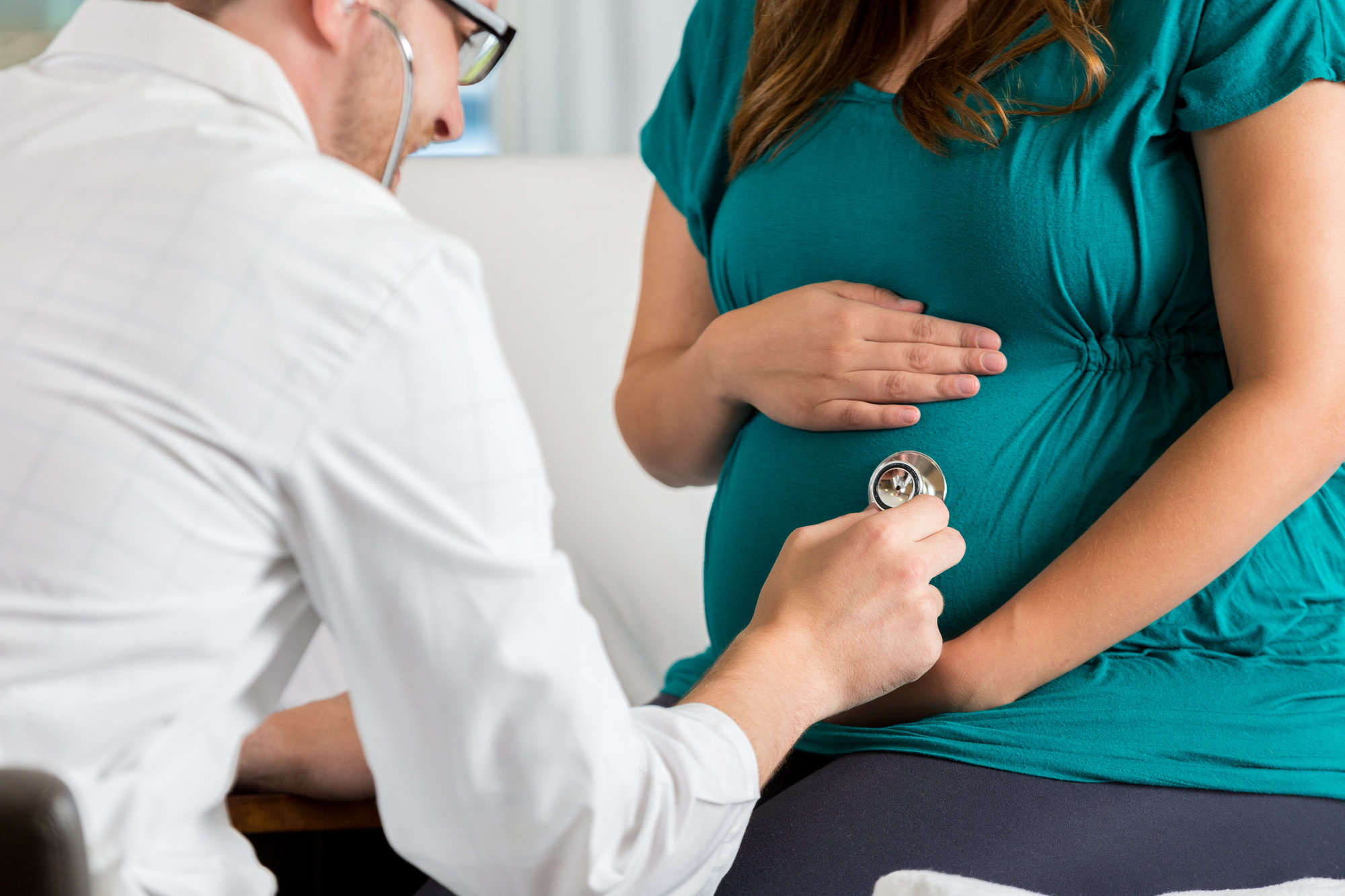Doctor knows best! Or at least that’s what we’re led to believe. The reality is that care providers are human beings — they make mistakes and have personal biases. And given the fat-shaming culture we live in, these biases all too often extend to plus-size women. Yes, most providers are working in your best interest, but when it comes to having exceptional medical care for you and your baby, it’s critical to connect with a size-friendly care provider.
I’ll never forget Hilary’s story, which she shared on my website, PlusSizeBirth.com:
As a first-time mom, Hilary was quick to blame herself rather than wonder if what her care provider was telling her was evidence-based. It wasn’t! The American College of Obstetricians and Gynecologists does not recommend cesarean birth only based on a person’s weight.
When an ob-gyn or midwife has a bias against people of size, it directly impacts the care their larger patients receive. I reached out to ob-gyns and midwives to ask what plus-size pregnant people should consider red flags in discussions with potential care providers. Along with being told you need a C-section based only on your weight, if you’re told any of these things (or some variation thereof), consider finding a new provider.
More from CafeMom: 14 Shops for Plus-Size Pregnant Women & Expert Tips for Killer Maternity Style
“If you hear a provider using derogatory weight terms, or other epitaphs that make you uncomfortable, this is likely not a therapeutic relationship for you,” warns Dr. Loralei L. Thornburg of the University of Rochester Medical Center. “However, I would say that appropriate counseling about risks of medical conditions, including extra monitoring or testing that may be needed to help you have your best pregnancy, are things that you SHOULD expect. And if you find that you have a provider that isn’t experienced with women of size, and isn’t willing to have frank and honest discussions about your care, weight gain goals, and how to be a team, that may also be a red flag.”
“A red flag can be when a provider pressures you into induction before your due date because they suspect your baby is large,” says Leslie Hamlett, ND, of the Canyon Medical Center. “The standards I use for achieving and maintaining optimal health during pregnancy apply to all of my patients, regardless of their size. Everyone benefits from 20 minutes of moderate exercise most days of the week, a diet free of refined sugars and high in carbohydrates, a minimum of eight hours of sleep, and half their body weight in ounces of water. The basics apply to all pregnant women.”
More from CafeMom: 11 Places to Buy Plus-Size Nursing Bras That Fit Every Bust & Budget
Your provider needs to have the proper equipment to care for you, and that includes the correct size blood pressure cuff. When your blood pressure is taken with a cuff that is too small, you’ll get an inaccurate reading which can lead to either too much or not enough follow-up care. If you have a large upper arm, it’s important you speak up if a nurse or your provider doesn’t swap out the cuff for one that is the right size for you.
You’ll also want to make sure your care provider has a comfortable place for you to sit in their waiting area, a scale that properly measures your weight, larger gowns, and more than one size speculum.
As we’ve covered, plus-size people do face increased risks during pregnancy; however, those risks don’t mean a woman or her child is guaranteed to have complications. Around 70 percent of plus-size moms-to-be report their pregnancies were either “pretty good” or “fantastic.” So making a woman feel as though she is harming her child because of her weight goes beyond shaming; it’s completely irresponsible. If your provider is making you question your ability to have a healthy child — run!
More from CafeMom: 15 Insanely Offensive Things People Actually Said to Plus-Size Pregnant Women
“I think all too often women are put in these power play relationships where they feel that the relationship is one-way and [they’re obligated] to not question the provider,” says Jenn Ochse, CNM. “When it seems that conversations are one way, authoritarian, and don’t value your ‘mama gut’ reaction or thoughts, then it’s not somebody who is going to be truly in a respectful, supportive relationship.”

